Common Mistakes to Avoid When Buying Your First Home
Martin J Burke
Buying your first home is an exciting milestone, but it can also be filled with challenges. Many first-time buyers face pitfalls that could have been easily avoided with some planning and understanding. A home is often the most significant investment you’ll make, so it’s crucial to approach the process with care and research.
This guide will explore some of the most frequent mistakes new homebuyers make and provide tips on how to avoid them. By understanding these common errors, you can have a smoother, more enjoyable home-buying experience, ensuring that your first home meets your expectations and needs.
Skipping Pre-Approval and Budget Planning
Skipping pre-approval and budget planning is a common mistake among first-time homebuyers. Without pre-approval, you might look at homes outside your budget, leading to disappointment. Pre-approval involves a lender evaluating your finances and determining how much you can afford to borrow. This step not only helps you know your price range but also makes you a stronger buyer when you find a home you love.
One of the first things you should do is sit down and carefully plan your budget. Consider your monthly income, expenses, and how much you can comfortably allocate to a mortgage payment. Don’t forget to include property taxes, homeowner's insurance, and any homeowner association fees that might apply. These extra costs add up and need to fit within your monthly budget.
A good rule of thumb is to keep your home costs at or below 30% of your monthly income. Remember, owning a home includes more than just the mortgage payment. Maintenance and unexpected repairs can add financial strain, so having a solid budget helps you stay prepared.
Getting pre-approved not only guides your home search but also shows sellers you’re serious. It’s a step that can save you time and help ensure you don't fall in love with a home you can't afford.
Overlooking Hidden Costs and Fees
When you buy a home, it's easy to focus on the purchase price, but many buyers forget about the hidden costs that can catch them off guard. These expenses can add up quickly and affect your overall budget.
Consider the closing costs. These are fees paid at the end of the buying process and include things like loan origination fees, appraisal fees, and title insurance. Closing costs often range between 2% and 5% of the home’s purchase price.
Moving expenses are another hidden cost. Whether you’re hiring professionals or renting a truck to move your belongings, these costs should be included in your budget planning.
Don’t forget about initial repairs and upgrades. Even if your new home is in good condition, you might want to customize or improve parts of it. Setting aside some money for small updates or fixing issues found after moving in is a good idea.
Here’s a quick list of other common hidden costs:
- Property Inspection Fees
- Escrow Fees
- Mortgage Insurance (if applicable)
- Utility Adjustment Costs
Planning for these additional costs is essential to avoiding unpleasant surprises and enjoying your new home without financial burden.
Ignoring Home Inspections and Repairs
Skipping a home inspection can lead to costly surprises after you move in. A thorough inspection identifies issues that may not be visible at first glance. If you overlook this step, problems with the foundation, roof, plumbing, or electrical systems might go unnoticed until it’s too late.
Hiring a qualified home inspector gives you a detailed report on the home’s condition. This information helps you decide if the home needs repairs before you buy. If the inspection reveals major issues, you have the option to negotiate with the seller for repairs or a price reduction.
Consider these benefits of a home inspection:
- Peace of Mind: Knowing the home’s condition helps you plan for future repairs or upgrades.
- Financial Protection: An inspection can save you from unexpected repair expenses.
- Negotiation Leverage: Use the inspection report to request necessary repairs or a price reduction.
Ignoring minor repairs is also a mistake. Small repairs can turn into bigger problems if not addressed promptly. Plan for these fixes to maintain the home's value and ensure it's safe and comfortable.
Rushing the Negotiation and Purchase Process
Buying a home is exciting, but rushing through the process can lead to mistakes. Taking your time during negotiations ensures you get the best deal possible. Whether it's the purchase price, closing costs, or repairs, every part of the deal is negotiable.
Start by knowing what you want to negotiate. Be clear about your priorities, whether they involve lowering the price or having the seller cover closing costs or repairs. Research comparable home sales in the area to support your case.
It's important to review all documents carefully:
- Purchase Agreement: Ensure it includes all negotiated terms.
- Homeowner’s Association Rules: Check for any restrictions or fees.
- Title Report: Confirm clear ownership of the property.
Take time to read and understand every aspect of your contract before signing. Rushed decisions can lead to regrets later.
Conclusion
Buying your first home is a memorable experience, and avoiding common pitfalls helps make it a smooth journey. By planning your budget, accounting for hidden costs, inspecting the home, and negotiating effectively, you set yourself up for success. Each step in the process brings you closer to finding a home that suits your needs and lifestyle.
Look for a home for sale in Apex? Martin J Burke is here to guide you every step of the way. Our extensive experience in the real estate market ensures that you find the perfect home without unnecessary stress. Contact us today to start your home-buying journey with confidence!
